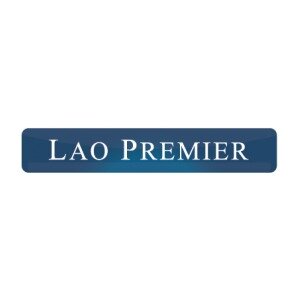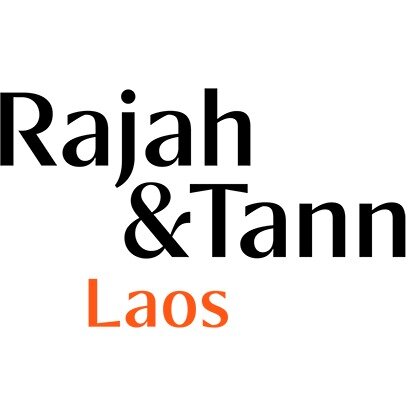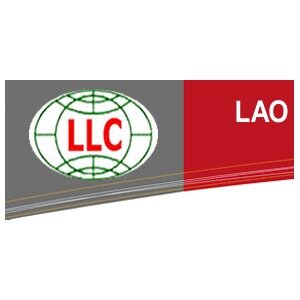Best Renewable & Alternative Energy Lawyers in Laos
Share your needs with us, get contacted by law firms.
Free. Takes 2 min.
Or refine your search by selecting a city:
List of the best lawyers in Laos
About Renewable & Alternative Energy Law in Laos
Laos is a landlocked country in Southeast Asia known for its abundant natural resources, especially its water resources that have made hydropower a major economic driver. In recent years, the government of Laos has emphasized the importance of diversifying its energy portfolio by fostering the development of renewable and alternative energy sources such as solar, wind, biomass, and small-scale hydropower. The legal framework governing renewable and alternative energy in Laos aims to encourage investment in these sectors, protect the environment, and ensure sustainable development. The government has entered into international agreements and established domestic policies and incentives to attract both local and foreign investors to the renewable energy market.
Why You May Need a Lawyer
While renewable and alternative energy projects offer many opportunities, they can also present significant legal and regulatory challenges. Individuals, companies, and organizations involved in these projects might need legal guidance to navigate the following situations:
- Securing permits and licenses for energy projects
- Negotiating power purchase agreements with the relevant authorities
- Ensuring compliance with environmental and safety regulations
- Structuring joint ventures, acquisitions, or partnerships in the energy sector
- Dealing with land acquisition and land use rights
- Understanding tax incentives and government subsidies
- Establishing cross-border agreements for electricity export
- Protecting intellectual property related to energy technologies
- Resolving disputes with contractors or government entities
- Navigating changes to local or regional energy laws and policies
A lawyer who specializes in renewable and alternative energy can provide critical assistance in these areas, helping clients minimize legal risks and capitalize on opportunities.
Local Laws Overview
The legal framework for renewable and alternative energy in Laos is shaped by several key pieces of legislation and government policies.
- Electricity Law: Governs the generation, transmission, distribution, and consumption of electricity, including regulations regarding renewable energy sources.
- Renewable Energy Development Strategy (2021-2030): Outlines national goals for renewable energy contribution to overall energy production, recommends supportive policies, and encourages private investment.
- Investment Law: Provides incentives such as tax holidays and exemptions for investments in renewable energy projects, with specific provisions for foreign investors.
- Environmental Protection Law: Sets out requirements for environmental impact assessments for energy projects to protect natural resources and local communities.
- Land Law: Regulates land access, acquisition, and use, which is essential for any energy development project.
The Ministry of Energy and Mines is the key regulator, alongside the Ministry of Natural Resources and Environment and other sector-specific government agencies.
Frequently Asked Questions
What are the main types of renewable energy promoted in Laos?
Hydropower, solar energy, wind power, and biomass are the primary renewable energy sources encouraged by the government.
Can foreign companies invest in renewable energy projects in Laos?
Yes, foreign investment is allowed and promoted with incentives, subject to compliance with relevant laws and regulations.
What permits or licenses are required for developing a renewable energy project?
Typical requirements include an investment license, electricity generation license, environmental impact assessment approval, and land use rights authorization.
Are there government incentives for renewable energy projects?
Yes, incentives can include tax exemptions, reduced import duties on equipment, and support with land acquisition for qualifying projects.
What role does the government play in the energy sector?
The government regulates the sector, issues permits and licenses, enters into power purchase agreements, and sets policy directions for the industry.
Do renewable energy projects require an environmental impact assessment?
Most projects, especially those of larger scale, require an environmental impact assessment approved by the Ministry of Natural Resources and Environment.
How are disputes related to renewable energy projects resolved?
Disputes may be resolved through negotiation, mediation, arbitration, or litigation, depending on the contract terms and applicable laws.
Can electricity generated from renewables be exported?
Yes, Laos exports electricity to neighboring countries. Cross-border sales require additional approvals and compliance with export regulations.
What is a Power Purchase Agreement (PPA)?
A PPA is a long-term contract between an energy producer and a purchaser (often a government-owned utility), specifying terms of electricity sale, pricing, and delivery.
How can local communities be affected by renewable energy projects?
Projects may impact land use, livelihoods, or the environment. Proper consultation, compensation, and adherence to social impact requirements are mandated by law.
Additional Resources
If you need more information or support regarding renewable and alternative energy in Laos, the following resources and organizations can be helpful:
- Ministry of Energy and Mines (MEM): The primary government body regulating the power and renewable energy sector.
- Investment Promotion Department, Ministry of Planning and Investment: Provides information on investment procedures and incentives.
- Ministry of Natural Resources and Environment: Oversees environmental assessments and licensing.
- Lao National Chamber of Commerce and Industry: Offers business resources and connects investors to service providers.
- Renewable Energy Association of Lao PDR (REAL): Industry association promoting the use and development of renewable energy.
Next Steps
If you believe you need legal assistance related to renewable and alternative energy in Laos, consider the following steps:
- Identify your legal needs: Clarify whether you need help with contracts, permits, investments, compliance, or dispute resolution.
- Consult a specialized lawyer: Seek a lawyer or law firm with experience in energy and environmental law in Laos.
- Gather documentation: Bring any relevant documents such as project plans, contracts, permits, and correspondence with authorities.
- Contact relevant government bodies: Reach out to agencies like the Ministry of Energy and Mines or Investment Promotion Department for official guidance.
- Stay informed: Keep up to date with legislative changes and updates in the energy sector that may affect your rights or obligations.
Taking these steps will help you navigate the legal landscape of renewable and alternative energy in Laos and ensure your projects or investments are on a sound legal footing.
Lawzana helps you find the best lawyers and law firms in Laos through a curated and pre-screened list of qualified legal professionals. Our platform offers rankings and detailed profiles of attorneys and law firms, allowing you to compare based on practice areas, including Renewable & Alternative Energy, experience, and client feedback.
Each profile includes a description of the firm's areas of practice, client reviews, team members and partners, year of establishment, spoken languages, office locations, contact information, social media presence, and any published articles or resources. Most firms on our platform speak English and are experienced in both local and international legal matters.
Get a quote from top-rated law firms in Laos — quickly, securely, and without unnecessary hassle.
Disclaimer:
The information provided on this page is for general informational purposes only and does not constitute legal advice. While we strive to ensure the accuracy and relevance of the content, legal information may change over time, and interpretations of the law can vary. You should always consult with a qualified legal professional for advice specific to your situation.
We disclaim all liability for actions taken or not taken based on the content of this page. If you believe any information is incorrect or outdated, please contact us, and we will review and update it where appropriate.
Browse renewable & alternative energy law firms by city in Laos
Refine your search by selecting a city.












